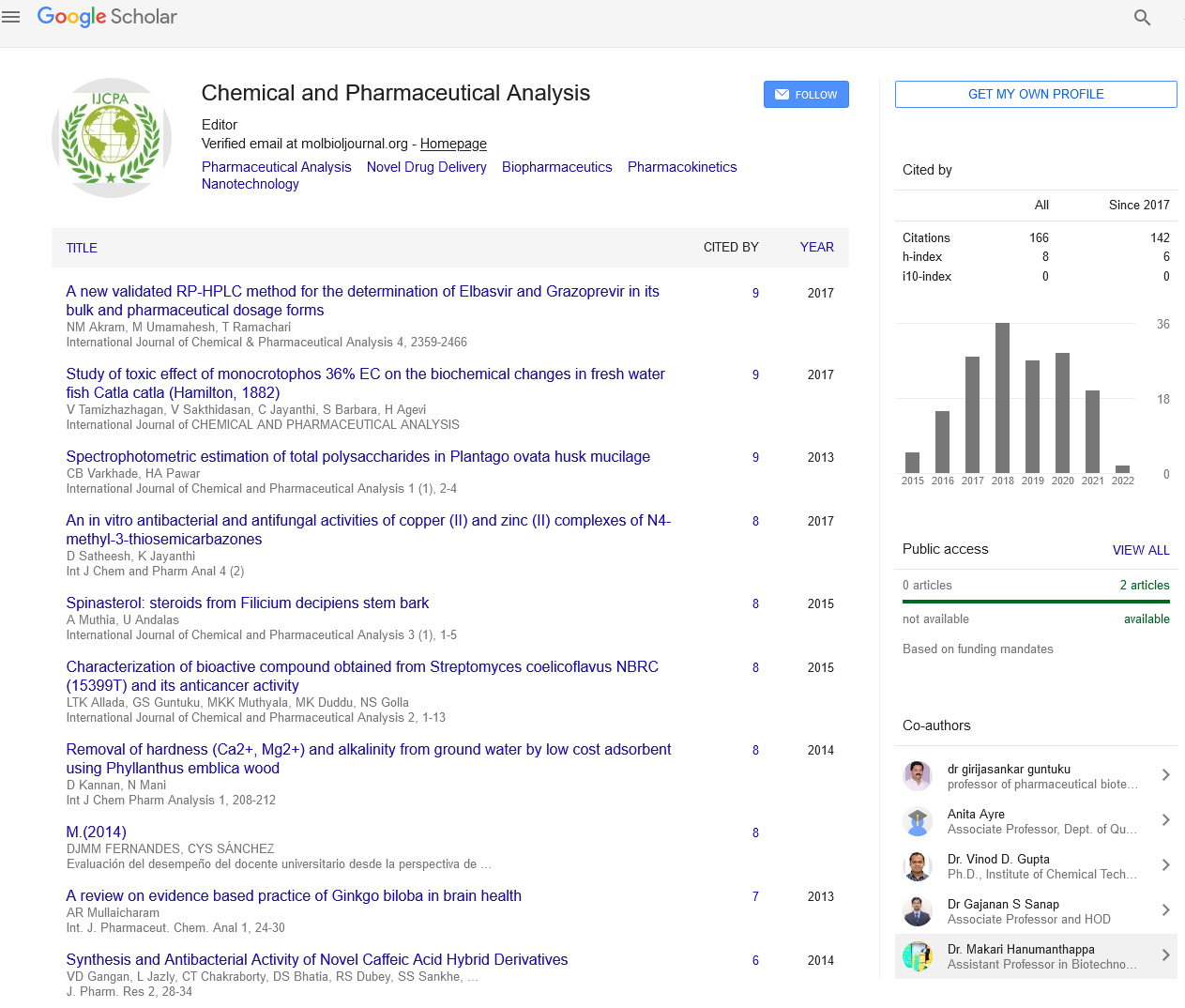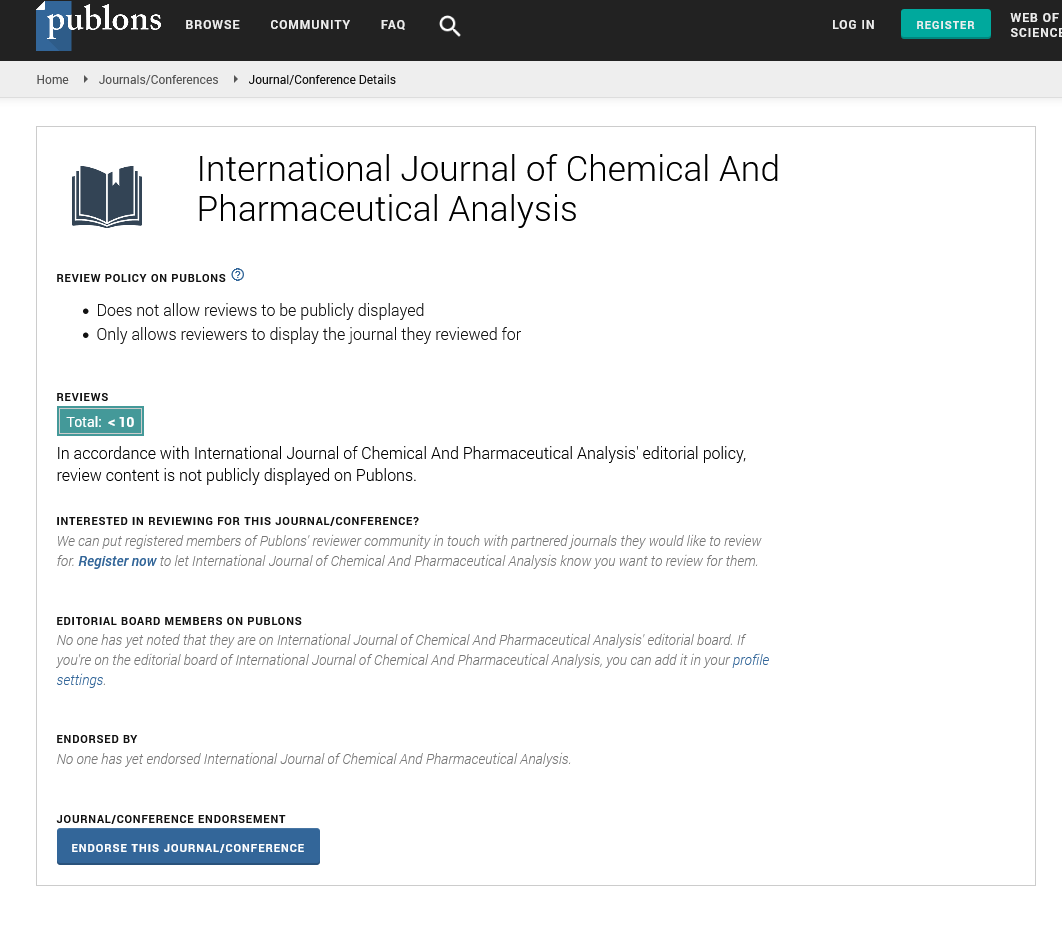Abstract
Author(s): Priya Pawaiyaa, Amrata Pawaiya, Nishi Agrawal and Radha Tomar
Ethyl-2-cyano3-phenyl acrylate (ECPA) used as an intermediate for the production of fine chemicals and pharmaceuticals was synthesized by Knoevenagel condensation of Benzaldehyde with ethyl cyanoacetate using Zn2+Phillipsite, Mg2+Phillipsite and H-Phillipsite Zeolite as a solid acid catalyst. Phillipsite was synthesized in the laboratory by hydrothermal method, after dealumination and calcination; the sample was characterized by different techniques such as powder X-ray diffraction analysis (XRD), Fourier Transform Infrared Spectroscopy (FTIR), Scanning Electron Microscopy (SEM), and Energy Dispersive Spectroscopy (EDS) analysis. Effect of various reaction parameters such as reaction time, molar ratio of reactants, and weight of catalyst and reaction temperature were studied to optimize the reaction conditions. The optimum conditions for the synthesis of Ethyl-2-cyano3-phenyl acrylate (ECPA) were found at benzaldehyde to ethyl cyanoacetate molar ratio 1:1 using 0.1g of the catalyst at 1400 C. The product was analyzed by Gas Chromatography and the conversion of benzaldehyde to (ECPA) was found to be 67.9% in case of H-Phillipsite, 54.9 Zn2+Phillipsite and 59.7 Mg2+ Phillipsite Zeolite.




